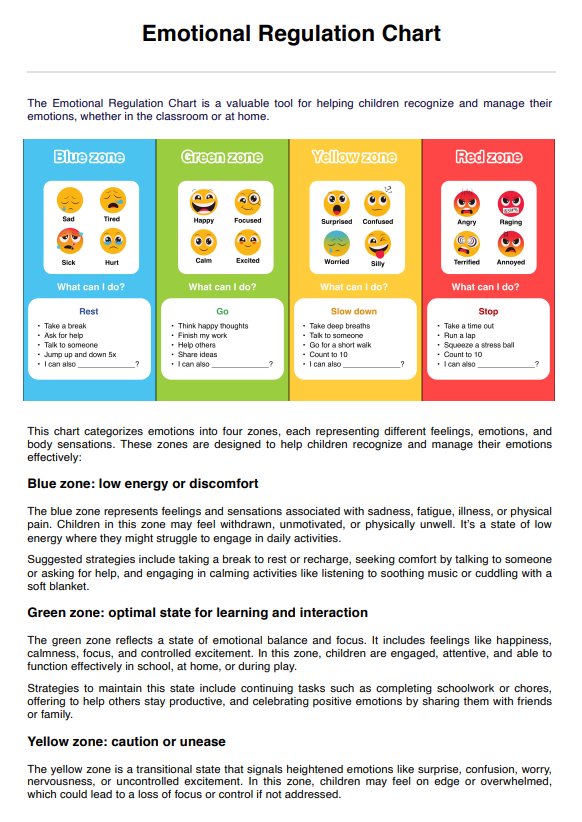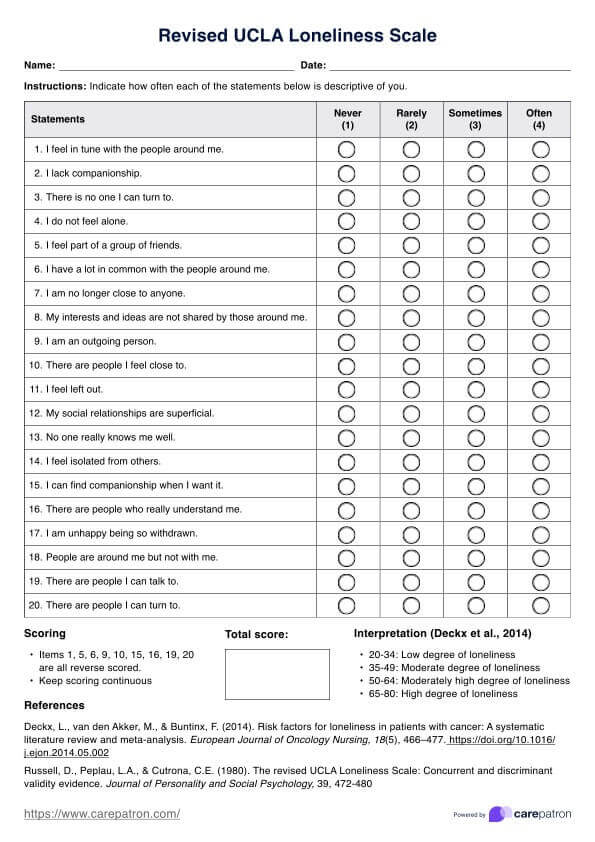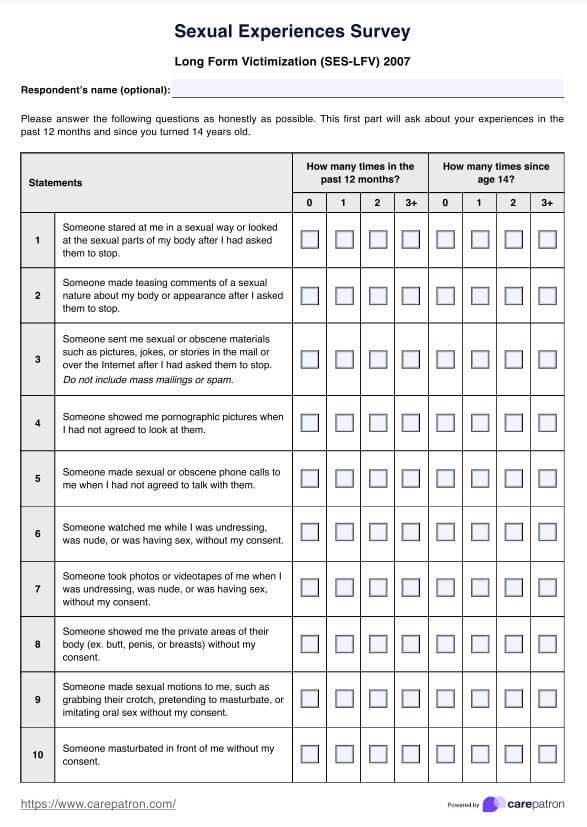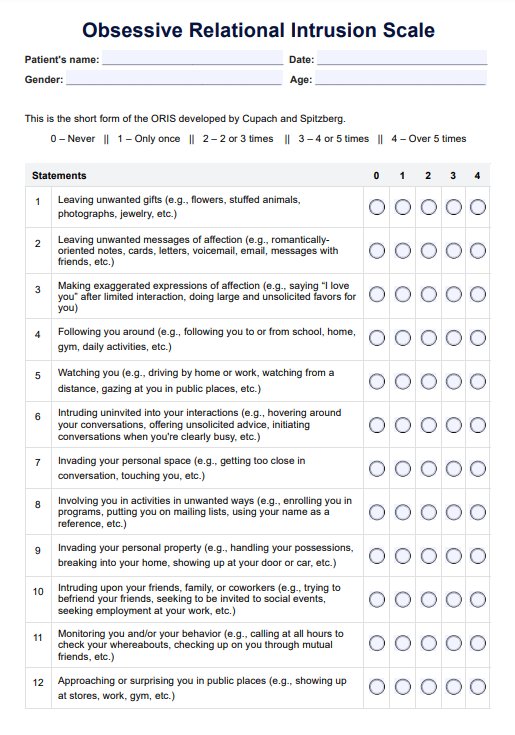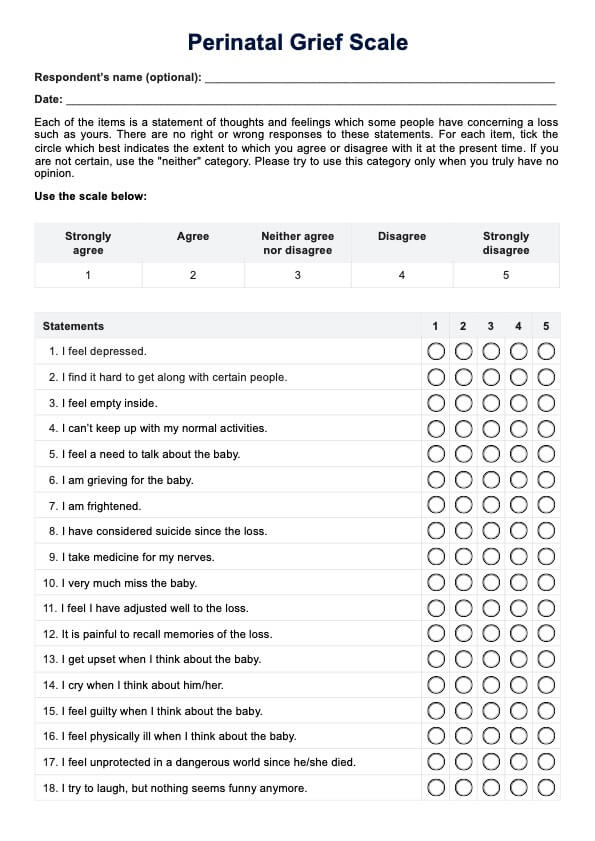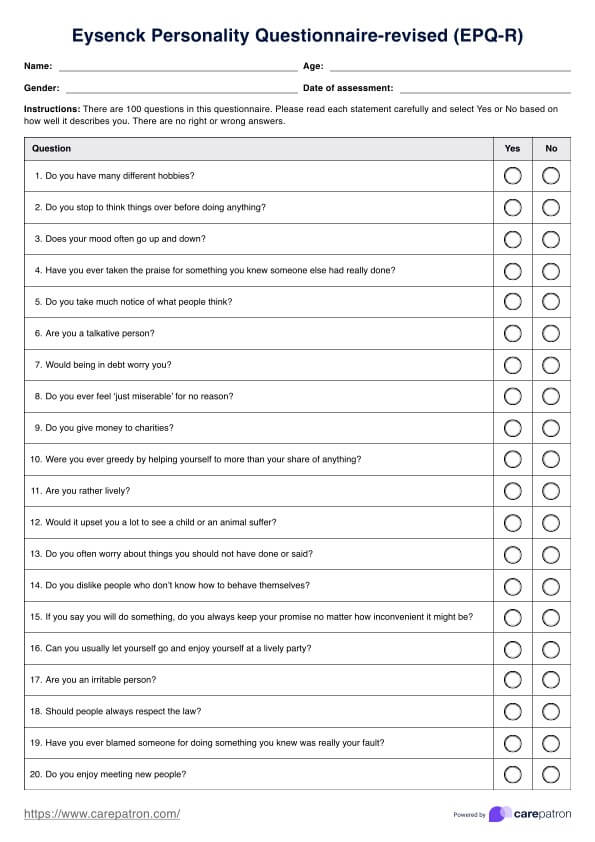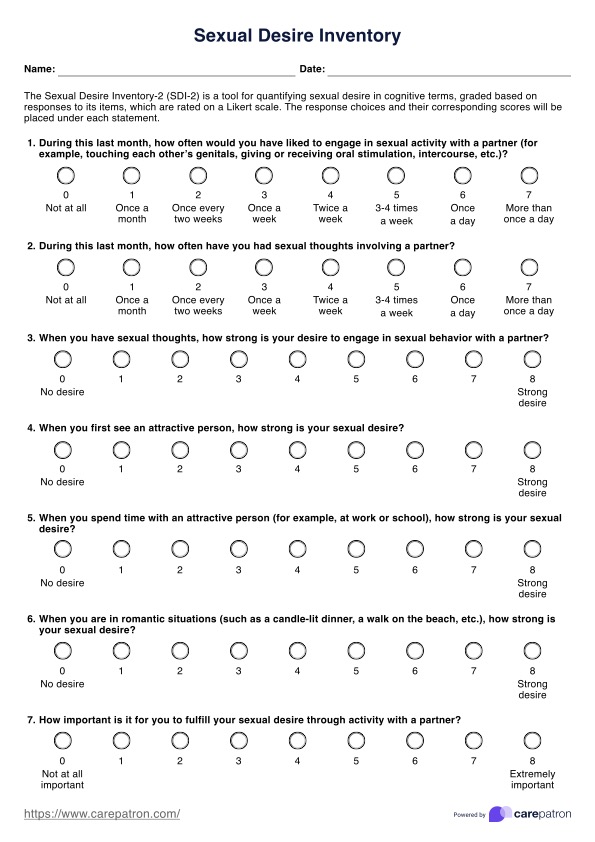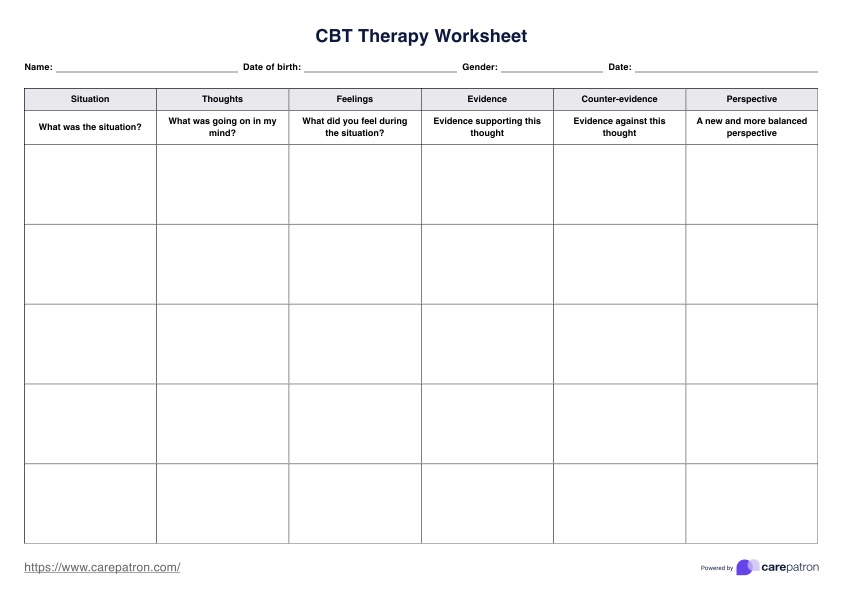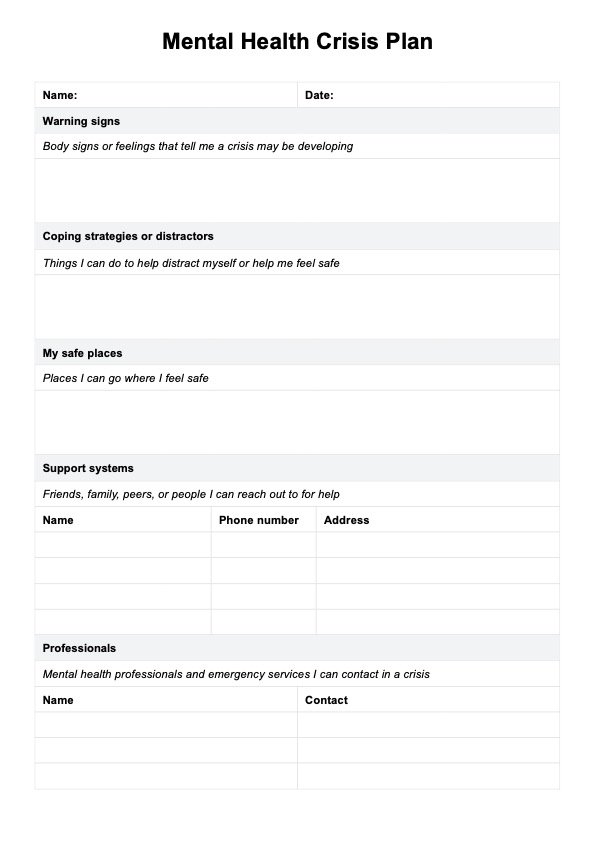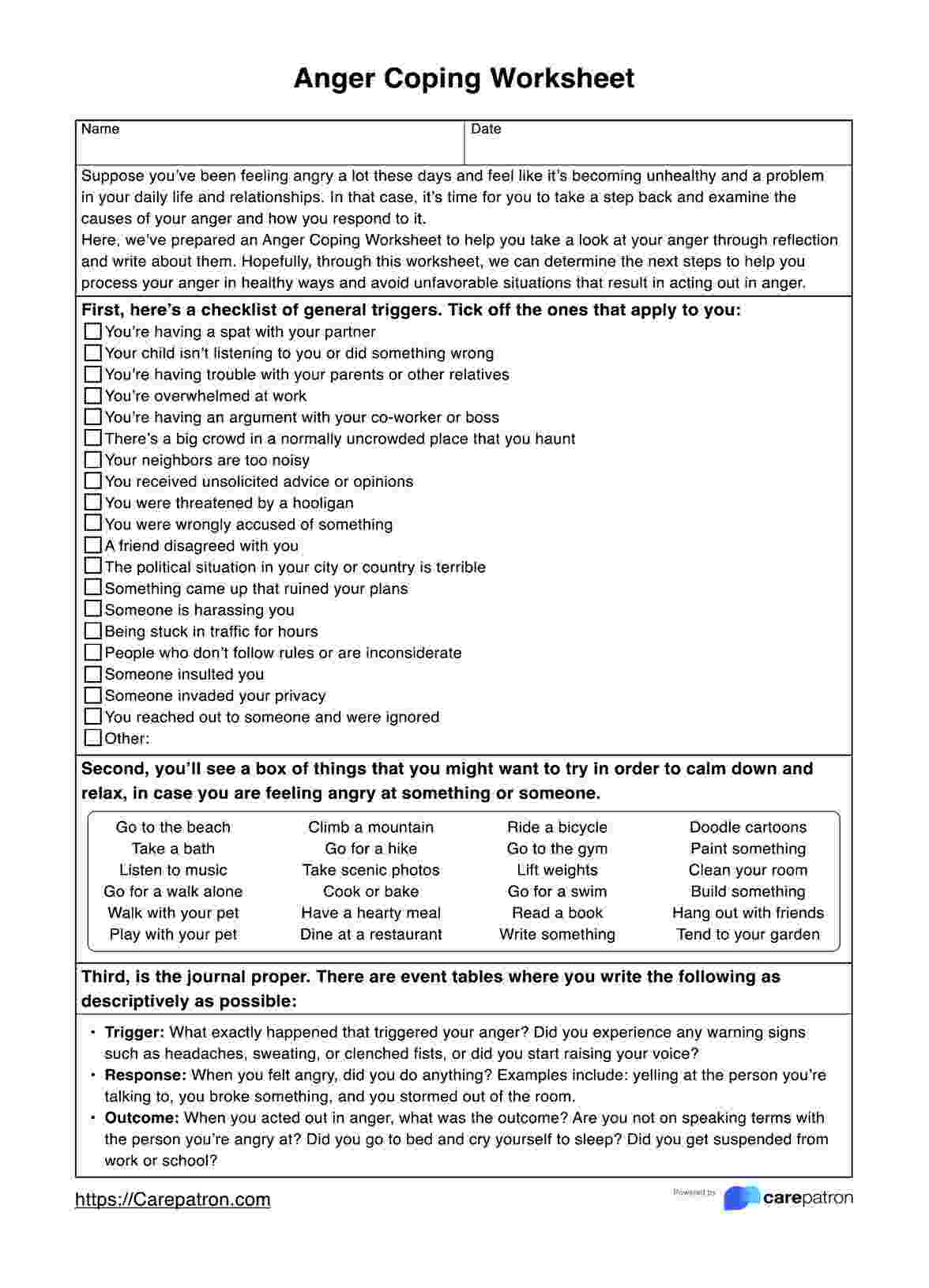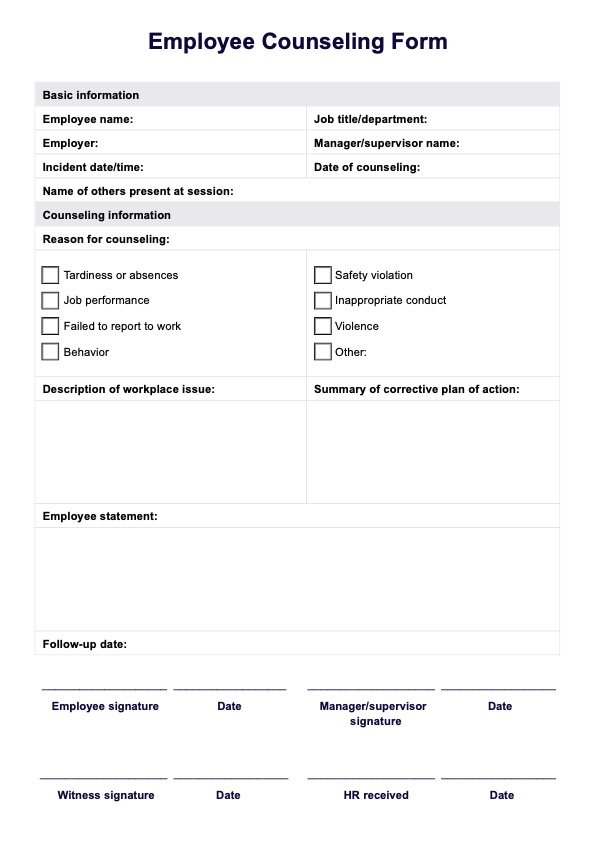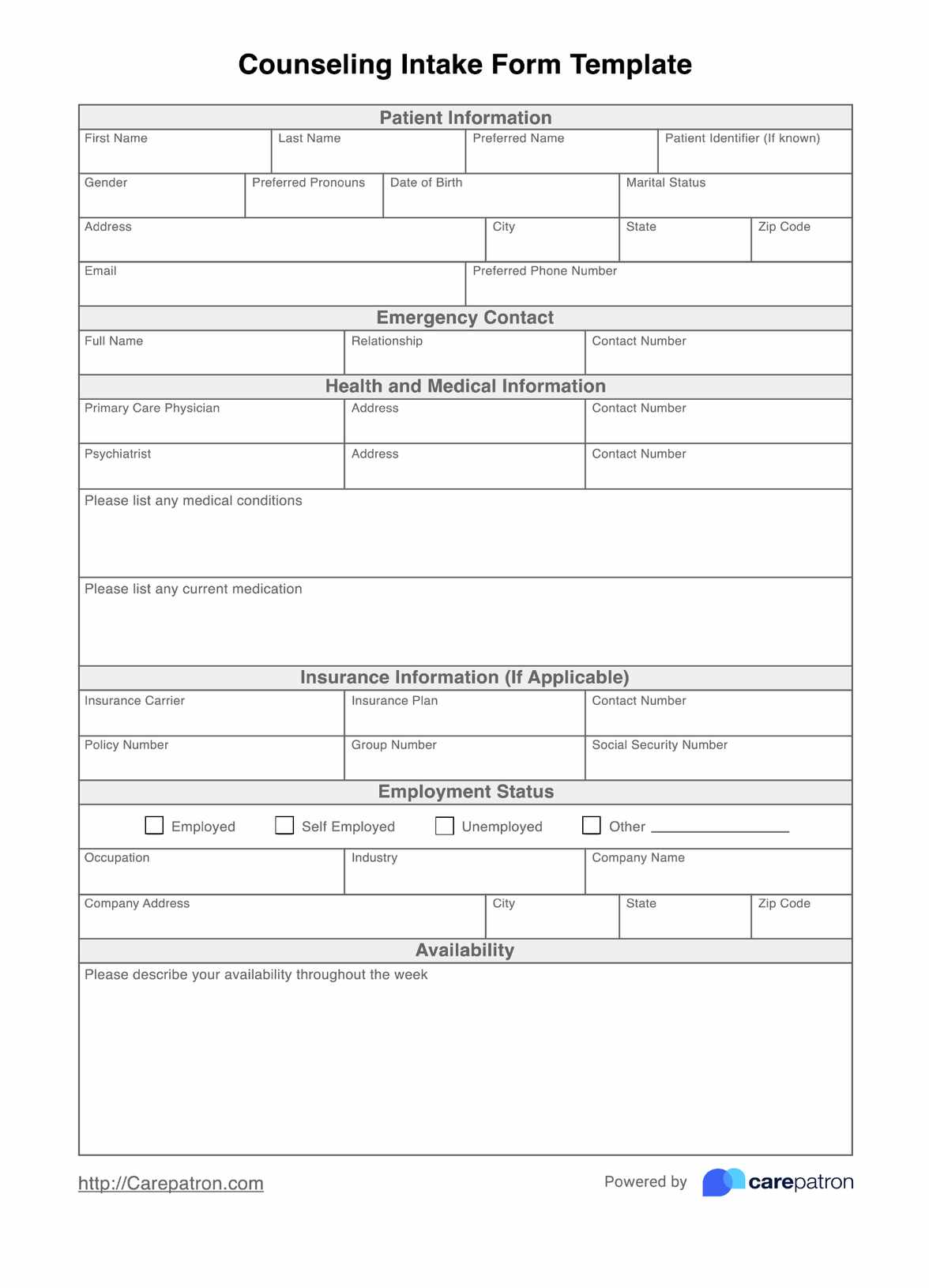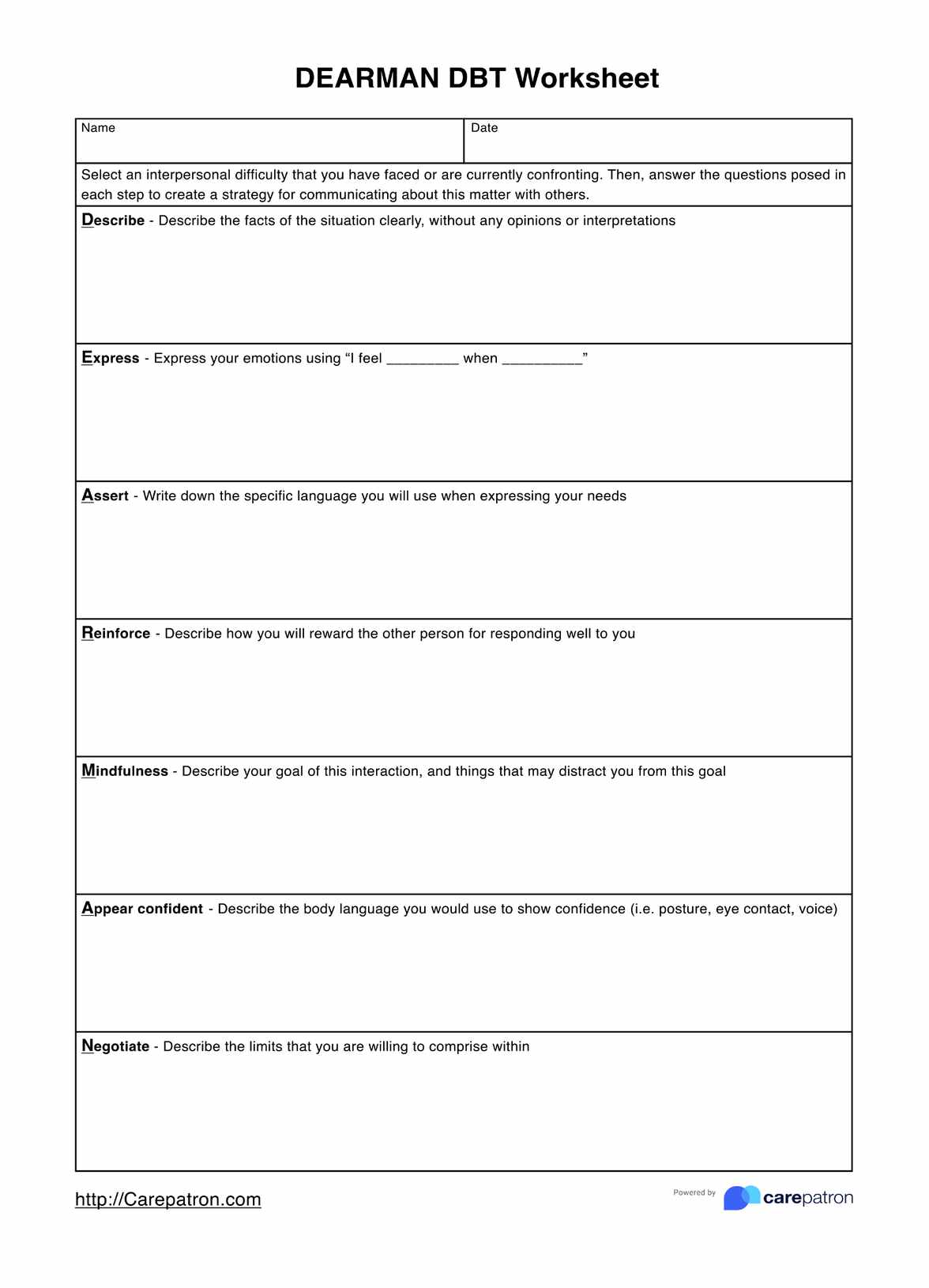Personal Values List
Discover how to identify and apply personal values for a fulfilling life with our guide, ideal for healthcare professionals and their patients.


An introduction to personal values
Personal values are fundamental beliefs and principles that guide and influence an individual's behavior, decisions, and interactions with others. These values are deeply ingrained in a person's character and often reflect their upbringing, culture, and personal experiences. Shared core values, such as those on our core values list, include honesty, respect, compassion, integrity, and loyalty.
These form the moral compass that directs a person's behavior in different situations. Each core value and its intertwined influence dictates the person's approach to life and relationships with others.
People develop and hold on to personal values because they serve as a foundation for their identity and actions. These values provide a sense of direction and purpose, helping individuals navigate life's challenges and choices. For instance, someone who values honesty highly may prioritize transparency and truthfulness in their communications and relationships.
Personal values are essential because they contribute significantly to an individual's overall well-being and satisfaction with life. One of the key points in understanding personal values is recognizing their role in shaping our responses to life's challenges and opportunities. They are reestablishing prioritizing goals and making meaningful decisions. Core values like empathy, responsibility, perseverance, and creativity shape an individual's worldview and interactions within their community and society. These values are relatively stable; it takes significant effort or a deeply affective event to change a person's core values.
Understanding and aligning with personal values is crucial for leading a fulfilling and authentic life. When people live by their values, they experience greater harmony and satisfaction. Conversely, misalignment between one's actions and personal values can lead to inner conflict, dissatisfaction, and stress.
Exploring and understanding an individual's values can be transformative, aiding self-discovery and personal development. It helps individuals make choices that are congruent with their true selves, leading to a more authentic and rewarding life.
Personal Values List Template
Personal Values List Example
What does it mean to be true to yourself?
Being true to yourself means living aligned with your values and beliefs rather than conforming to external expectations or societal norms. It involves understanding and embracing your authentic self, including your strengths, weaknesses, desires, and values. This authenticity requires self-awareness and honesty about who you are and what you stand for.
Living true to oneself means making choices that resonate with your core values, even when challenging or unpopular. It's about being honest in your actions and words, honoring your commitments, and not compromising on what you believe to be correct and accurate. For example, if one of your core values is integrity, being true to yourself would involve being honest and transparent in your dealings, even when it might be more accessible or more beneficial in the short term to do otherwise.
Why are core personal values important?
Core personal values are crucial because they are the foundation for an individual's identity, choices, and overall life direction. Here's why they hold such significance:
Guide for decision-making
Core values guide decision-making principles, helping individuals make choices congruent with their beliefs and authentic selves. This alignment leads to greater satisfaction and fewer regrets.
Source of motivation and purpose
Values provide a sense of purpose and motivation. When actions align with personal values, they feel more meaningful and fulfilling, driving individuals towards goals that resonate with their core beliefs.
Framework for personal growth
Understanding and honoring personal values is a pathway to personal growth. It encourages individuals to develop in ways that are true to their deepest selves, leading to genuine self-improvement.
Enhances well-being and reduces stress
Living in harmony with one's values can significantly enhance mental well-being. It reduces internal conflict and stress from living in ways contradicting one's fundamental beliefs.
Strengthens resilience
Personal, solid values provide a stable foundation, especially in adversity. They offer a source of strength and resilience, helping individuals navigate challenges with integrity and poise.
Core personal values are abstract concepts and guiding principles that shape how we experience and engage with the world. For healthcare professionals, facilitating the exploration and embodiment of these values in their patients can lead to more authentic, fulfilling, and mentally healthy lives.
Defining your core values
Defining personal core values is vital in understanding what motivates and guides an individual's actions. For healthcare professionals, helping patients identify their core values is a key step in facilitating personal growth and self-awareness. Here's how to guide this process:
Step 1: Access our template
Access the printable Personal Values List Template on the Carepatron app. It's designed to help patients reflect on and articulate their core values.
Step 2: Explain the template to the patient
Clearly explain the purpose of the template to your patient. Emphasize its role in discovering values that drive their thoughts and actions.
Step 3: List potential values
Encourage the patient to list potential values that resonate with them. This could range from 'family' and 'success' to 'creativity' and 'hone.'y.'
Step 4: Rate the importance of each value
Ask the patient to rate the importance of each listed value. This helps in prioritizing and focusing on values that truly matter to them.
Step 5: Reflect on the origins and impact of these values
Guide the patient to reflect on why certain values are important to them and how they manifest in daily life.
Step 6: Align values with life goals
Discuss how their values align with their current life goals. This alignment is crucial for living a life congruent with their beliefs.
Step 7: Identify values to incorporate more
Help the patient identify values they wish to incorporate more into their life and develop an action plan.
By following these steps, healthcare professionals can assist patients in clearly defining the core values that are fundamental to living a fulfilling and authentic life.
Applying your values in different environments
Applying personal values across various environments is crucial for maintaining consistency and integrity in one's life. Our values guide our interactions and decisions, whether at home, in the workplace, or within the community. Here's how to apply values in different settings:
In personal life
At home or in personal relationships, values like honesty, empathy, and respect are key. They guide how we treat family members, resolve conflicts, and make personal decisions.
In professional life
Professional environments benefit from values like integrity, responsibility, and teamwork. These values influence work ethic, collaboration with colleagues, and adherence to ethical standards.
In a social setting
In social interactions, values such as kindness, tolerance, and fairness play a significant role. They shape how we interact with friends, acquaintances, and even strangers, contributing to a harmonious and respectful society.
In community engagement
Participating in community activities, values like service, altruism, and civic responsibility come to the forefront. They drive involvement in community projects, volunteering efforts, and support for local initiatives.
By consciously applying personal values in these different environments, individuals can create a cohesive and fulfilling life experience that aligns with their core beliefs. This alignment brings a sense of authenticity and satisfaction in various life aspects.
Putting core values into action
Putting core values into action is about making these values a living part of daily life. It's about aligning actions and decisions with what is fundamentally important to you. Here are some ways to actively incorporate core values into everyday life:
Integrate values into daily decisions
Encourage patients to consider their core values in everyday decisions, such as how they interact with others, work, or spend their free time.
Set goals aligned with values
Help patients set personal and professional goals that align with their values. Achieving these goals will feel more fulfilling and meaningful.
Develop habits that reflect values
Suggest building daily or weekly habits that reflect their core values. For instance, if 'kindness' is a value, they could make it a point to perform a kind act each day.
Communicate values to others
Advise patients to communicate their values to others, which can help build supportive and supportive relationships with their beliefs.
Evaluate relationships and commitments
Guide patients to evaluate their current relationships and commitment. Please encourage them to invest time and energy in those that resonate with their core values.
Overcome challenges by reflecting on values
In times of difficulty, remind patients to reflect on their values. This can provide clarity and strength to overcome challenges.
Individuals can lead a more purposeful and authentic life by applying their core values. For healthcare professionals, guiding patients in this process is vital for their emotional well-being and personal development.
Tips for defining your core values
Defining your core values is a reflective and personal process providing the foundation for a fulfilling life. Here are some tips to help individuals uncover and articulate their core values:
- Reflect on past experiences: Think about past experiences, especially those that were particularly fulfilling or distressing. Analyze what these experiences say about what you value most.
- Identify moments of peak happiness: Consider times when you felt happiest. What were you doing? Who were you with? These moments can reveal values like connection, freedom, creativity, or achievement.
- Recognize patterns in admiration: Observe the qualities you admire in others. Often, the traits we appreciate in others reflect our values.
- Pay attention to causes of discomfort: Notice situations that make you uncomfortable or angry. These feelings can signal a conflict with your core values.
- Use value lists for inspiration: Look at lists of expected values for inspiration, but remember, your values should be personally meaningful, not just what sounds good.
- Prioritize your values: Once you've identified potential values, prioritize them. Which values are non-negotiable? Which ones are important but not as critical?
- Reflect and reassess regularly: Values can evolve. Practically reflecting on and reassessing your values helps ensure they stay aligned with your current self.
For healthcare professionals, guiding patients through these steps can be an enlightening part of therapy, helping them to live more authentically and purposefully.
Commonly asked questions
Personal values are the fundamental beliefs and principles that guide an individual's behavior and decision-making. They reflect what is essential to a person and influence their priorities and interactions with the world.
Personal values are fundamentalist as they shape an individual's identity, influence their actions and decisions, and contribute to their overall sense of self and life satisfaction. They are a vital key to living a purposeful and authentic life.
Common personal values include honesty, integrity, kindness, respect, responsibility, family, hard work, creativity, and compassion. These values vary significantly among individuals based on their experiences and cultural backgrounds.


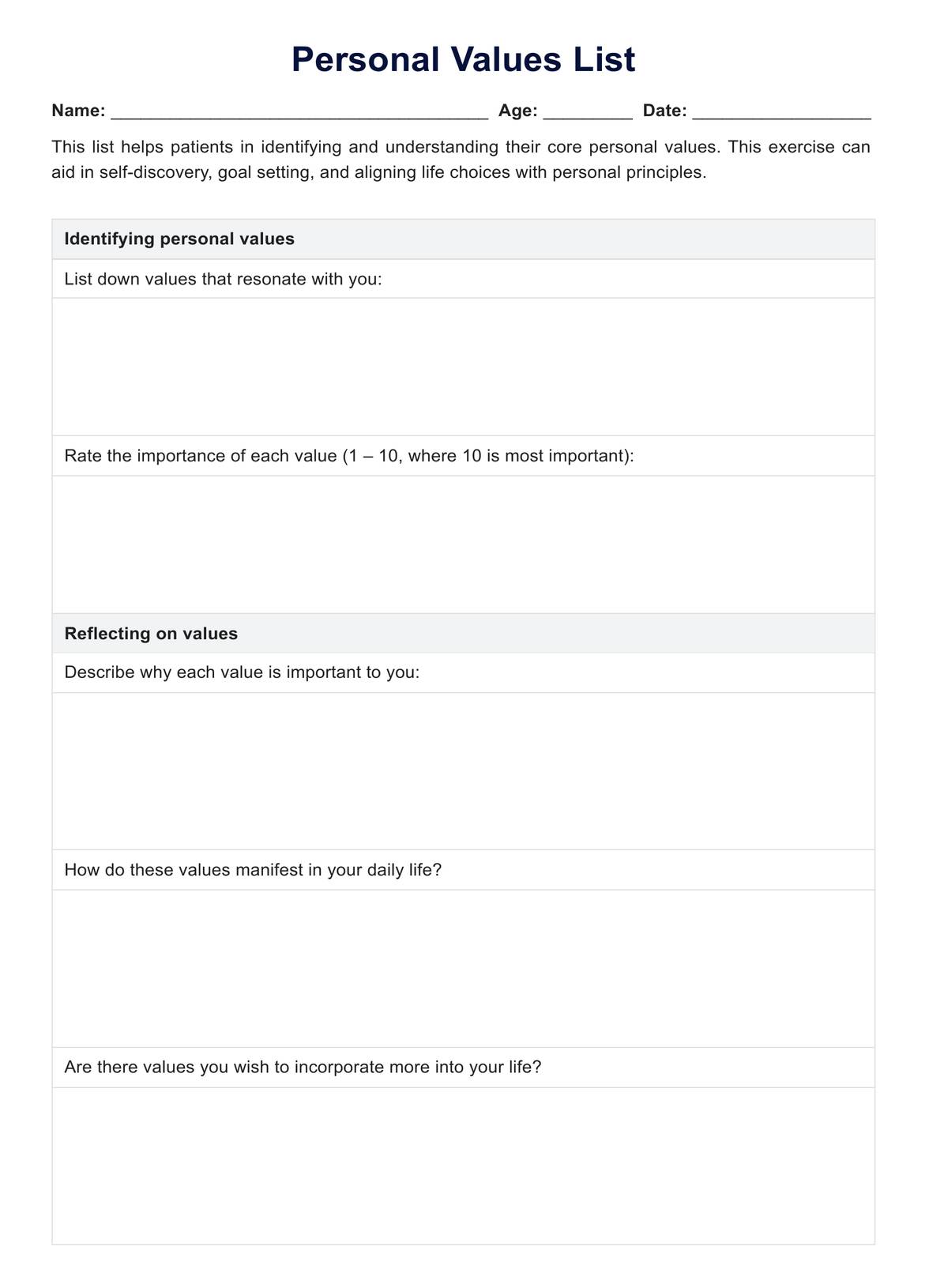
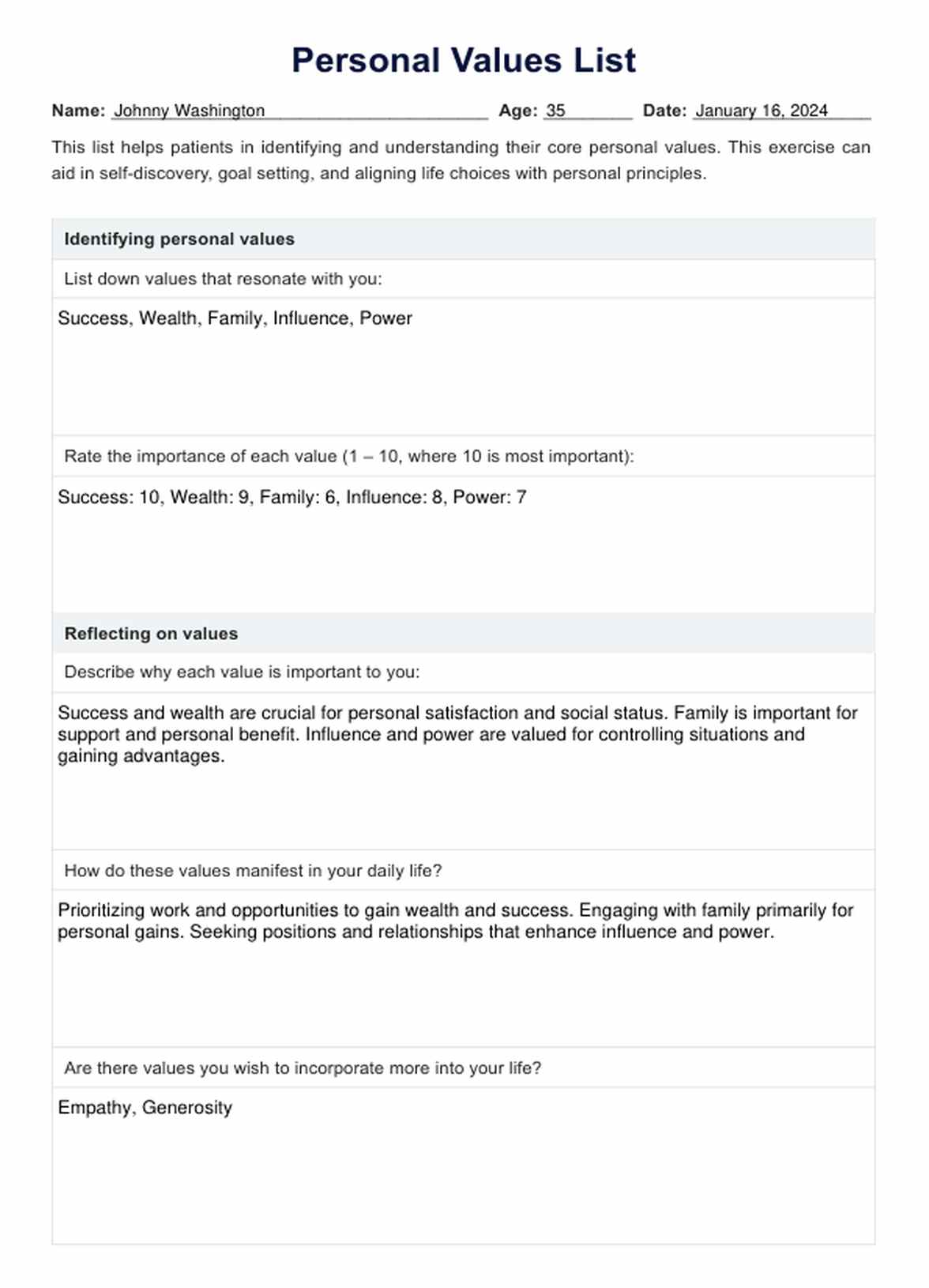

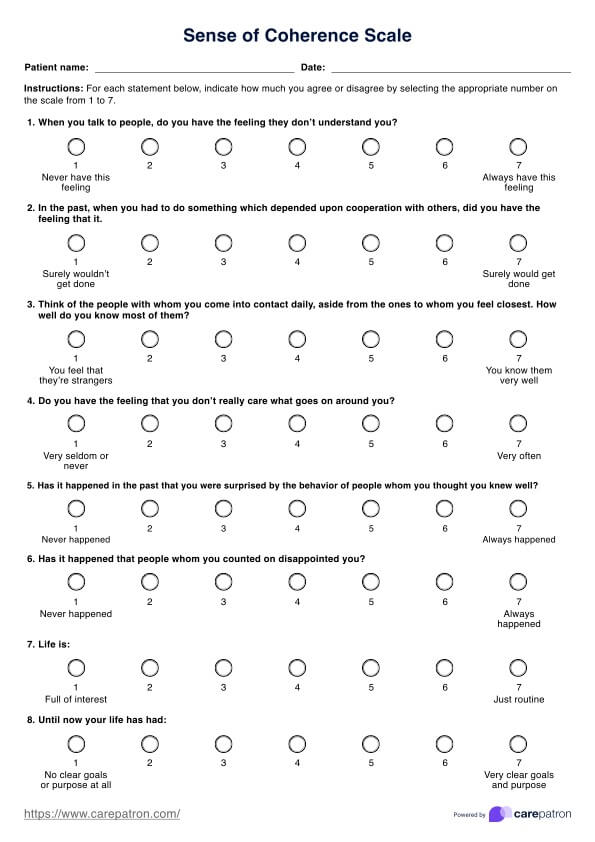

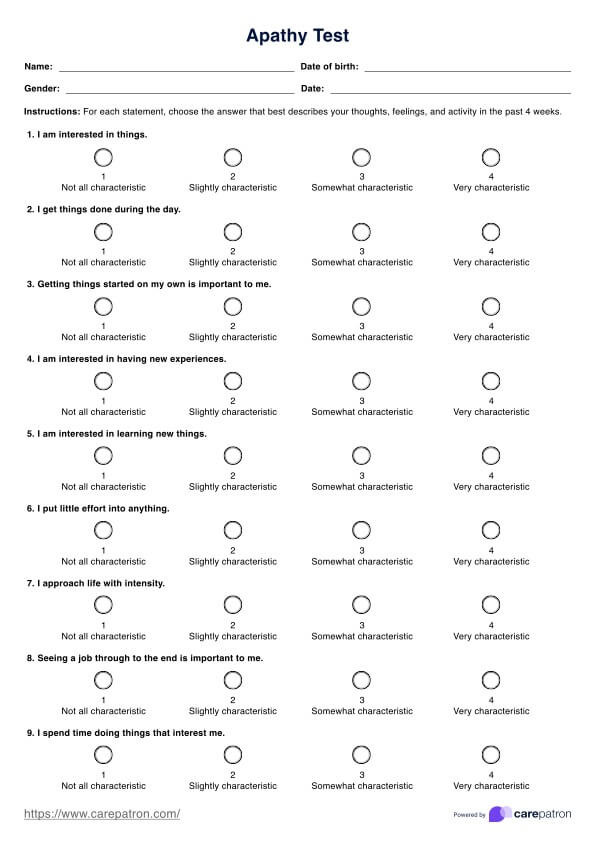










-template.jpg)






